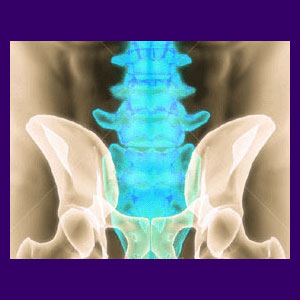
The psychology of degenerative disc disease is certainly an important part of the symptoms experienced by any diagnosed patient. The name of the condition is very scary sounding, with the majority of patients picturing the very structures of their spines crumbling from age and injury.
It is no surprise that this completely normal, universal and expected part of the aging process has become a major scapegoat on which otherwise idiopathic back pain is often blamed.
This dialog takes a glimpse at the psychoemotional ramifications of being diagnosed with degenerative disc disease. If you are wondering why your pain got worse once diagnosed with degenerative disc disease, this dialog will provide all the answers that you are seeking.
Diagnostic Psychology of Degenerative Disc Disease
I clearly recall how I felt when my first chiropractor diagnosed degenerative disc disease when I was only 16. I could not understand how my spine could be failing at such a young age, especially since I was so healthy and always in good shape.
This chiropractor did not take the time to explain any of the facts of degenerative disc disease to me; he merely set the stage for a protracted experience of suffering with his vile bedside manner and imparted nocebo effect. Looking back, it truly seems he did everything he could to literally scare me to death about what was going on in my spine. This care provider turned out to be a greedy and insatiable man, when it came to his fee structure, so it would be no surprise if his entire diagnostic method was created to keep me, and all his other patients, in extended care, simply to further his own financial aspirations.
Being diagnosed with degenerative disc disease should be of no surprise. Discs degenerate as a normal part of life. I have DDD. You have it. Your doctor has it. People without any spinal degeneration are genetic anomalies.
Treatment Psychology of DDD
There are few effective treatments for degenerative disc disease and that is fine, since treatment is almost never necessary. Pain blamed on degenerated discs might be relieved using any of the many symptomatic therapy modalities, although none of these will do anything to cure the condition.
Back surgery is the only option which might actually change the spinal anatomy and alter the physical signs of DDD. However, degenerative disc disease surgery is a horrific experience which generally offers terrible results for resolving chronic back pain and especially degenerated disc-related complaints.
Personally, I found that once most patients learn the truth about DDD, they are no longer frightened or intimidated by the diagnosis. Therefore, they do not continue to suffer any pain or related symptoms. This is the blessing imparted by the knowledge therapy approach to DDD treatment.
Psychology of Degenerative Disc Disease Guidance
Education is always a good thing, and when it comes to DDD, it is vital. Without knowing the facts, you are a pawn of care providers who might just send you on a wild chase searching for relief for a condition which requires no therapy at all. Remember that degeneration in the lower lumbar and cervical areas is normal and generally occurs to a moderate extent by the age of 30. Many patients, such as myself, might demonstrate these changes far younger. DDD at L4/L5 and L5/S1 is virtually universal.
If this is the diagnosed source of your pain, I strongly advise you to get a second opinion before seeking any treatment or complying with any drastic care recommendations. The more you learn, the sooner you will discover that degenerative disc disease is rarely the pathological condition it is made out to be by opportunistic and financially-motivated care providers. Instead, it is usually just a simple aspect of getting older that never has to cause you any pain whatsoever.
Back Pain > Psychology of Back Pain > Psychology of Degenerative Disc Disease




